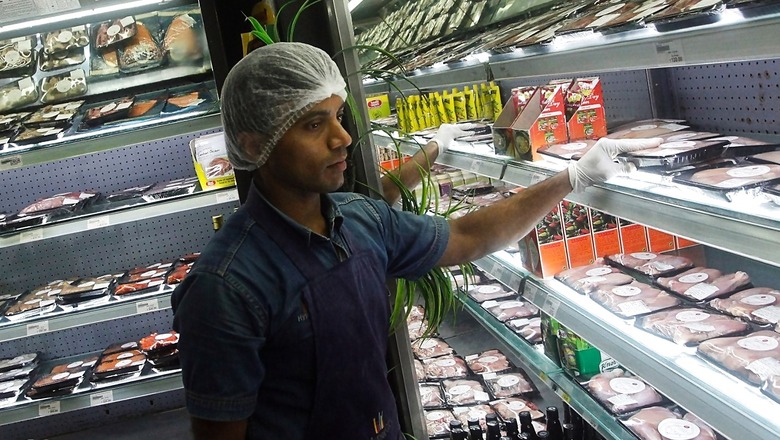
views
Hindutva groups in Karnataka have demanded a ban on Halal meat ahead of the Ugadi festival (New Year’s Day) on April 2 as they have alleged that the money from the Halal certification is used for anti-national activities.
BJP national general secretary CT Ravi had said the Halal meat is part of “economic jihad” by the Muslim community. He even said when Muslims refuse to buy non-Halal meat from Hindus, “why should you insist Hindus to buy from them?”
So, what exactly is the difference between Halal and non-Halal (Jhatka) meats?
Muslims follow the practice of Halal meat while the Sikh community prefers ‘Jhatka’. The word Halal in Arabic means ‘fit for consumption’. The process involves slaughtering the animal slowly with lines from the Quran. Jhatka, however, means swift, chopping the head of the animal in a single blow so that it dies instantly without “much pain”.
Is there any nutritional value in the meat in both the processes?
Some experts say they believe since the blood is drained from the animal’s arteries in the Halal process, removing more toxins as the heart continues to pump after the slaughter, it has more nutrition than in Jhatka, where the blood is not drained properly, thus making the meat tougher and drier.
Clifton Rosa Clifton Rozario, an advocate in Bengaluru, who is also a nutrition activist, said, “Why are we trying to create an issue here? As a responsible citizen, we should call it like it is… There is no nutritional value attached to the slaughtering of meat, and this is purely religious.”
Another, Sylvia Karpagam, a public health doctor in Karnataka, said, “If there are calls to boycott halal meat, are they (government) bringing any alternatives? Science says that good quality proteins, vitamins and minerals come from animal source foods and this includes meat. Is the government doing anything about the serious malnutrition crisis in the state that has aggravated because the ration shops and mid-day meal scheme have shut down? This is a political agenda. The government needs to make animal foods more accessible to people instead of shutting down even existing sources. This affects both livelihood and nutrition adversely.”
In an article in the Free Press Journal, professor of Islamic theology Dr Imam-ul-Unsif, had said apart from being a mere religious practice, “halal has no other significance”. He further said “Jhatka is more humane in the sense that it does not cause excruciating pain to the animal.”
Is there a logic as an animal is slaughtered in both the cases?
According to reports, from a scientific point of view, in order to keep the meat soft and juicy, the PH level should be around 5.5 after the slaughter. In the Jhatka meat, the PH value is as high as 7.
The Ugadi festival, which will be celebrated on April 2 in Karnataka and Andhra Pradesh, to mark the new Hindu lunar calendar, has Hindu families hosting a feast where the meat is consumed. Muslims, as per Islamic practices, can only consume Halal meat.
Muslim traders are also facing a ban on setting up stalls in the temples fairs in Karnataka during religious festivals.
The Basavaraj Bommai government has defended the move, citing a little known law that bans the non-Hindus near the temple premises during religious occasions.
The Karnataka Congress has blamed the RSS and Sangh Parivar for stoking the controversy ahead of the next year’s election.
Read all the Latest News India and Breaking News here


















Comments
0 comment